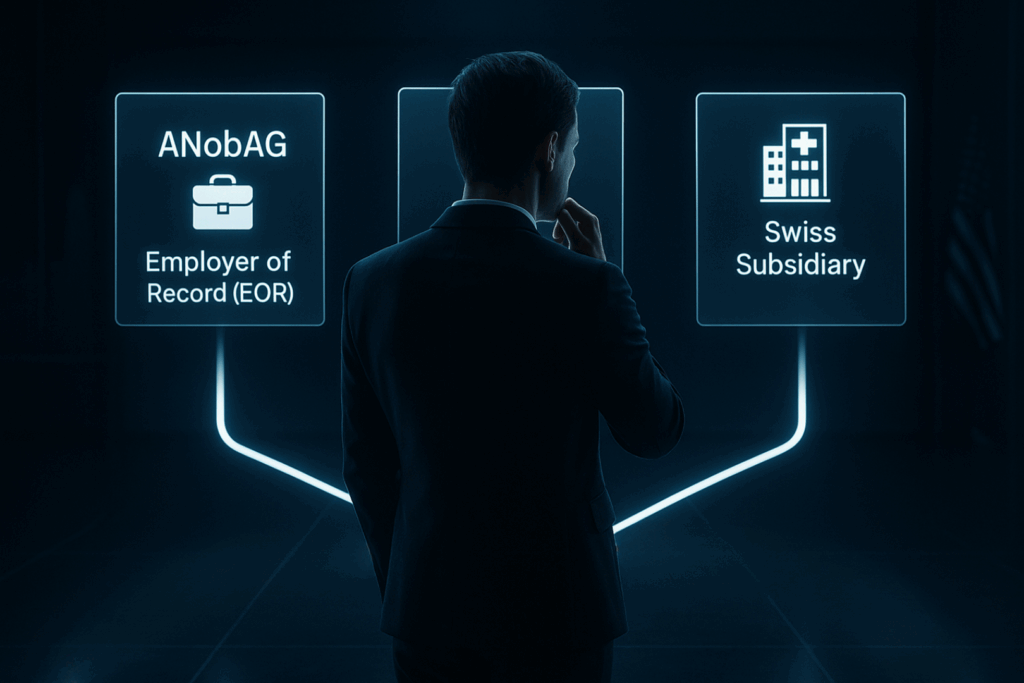Taxation of Cryptocurrencies and Decentralized Finance (DeFi) Activities

If you’ve invested in Bitcoin and other cryptocurrencies, or are partaking in decentralized finance (DeFi) activities, you must inevitably ask yourself how to declare these digital assets and earnings in your tax return. This article will clarify how Swiss tax law treats cryptocurrency and DeFi activities and what you as a crypto owner or trader need to consider.
Cryptocurrency: An Asset, Not an Exchange Product for Tax Purposes
Cryptocurrency trading, though highly speculative, is not treated by the Swiss tax authorities like a stock exchange product (e.g. share or derivative). Instead, cryptocurrencies are classified as a means of payment, akin to conventional cash (so-called fiat money) or precious metals. For VAT purposes, no distinction is made between cryptocurrency and traditional currency; no VAT is due on the purchase, sale, or use of cryptocurrency for procuring products or services.
As a crypto owner, you pay tax on the assets you own in cryptocurrency together with your total assets. Cryptocurrency is attributed to your assets from a Swiss tax law perspective. Tax is determined based on the total assets.
Smaller amounts of cryptocurrency used for payments can be disregarded in your tax return. This is analogous to cash as an asset, which does not have to be included in the tax return up to a customary household amount. Cryptocurrency amounts exceeding this limit must be declared as assets.
« Cryptocurrency is attributed to your assets from a Swiss tax law perspective.»
Mining and DeFi Activities
Cryptocurrency mining or participating in a mining project, where you receive a fee for providing computing power, is considered taxable income.
In contrast, staking is a DeFi activity where you provide coins to the blockchain and receive a fee or reward. The tax situation concerning staking rewards is now clearer, and such rewards are considered taxable income. Staking activities can be further divided into Delegator-Staking and Validator-Staking, with different tax implications.
Lending, another DeFi application, involves providing a crypto token amount to others, earning interest in return. Such interest is also subject to income tax.
Liquidity mining involves providing capital to decentralized exchanges, earning governance tokens and a share of trading fees in return. These earnings are taxable income as well.
Declaration and Assessment of Cryptocurrency in Tax Form
Cryptocurrency assets should be reported as an asset in the list of securities and credit balances under “other assets”. Rewards from mining activities, staking, lending, and liquidity mining are to be reported for income tax purposes.
The exchange rates for cryptocurrencies need to be converted into CHF for tax returns, with the Swiss Federal Tax Administration publishing a list of exchange rates for most common cryptocurrencies. If your cryptocurrency is not listed, the tax authorities will usually use either the purchase price or the year-end rate as a basis.
How Is the Cryptocurrency Rate Quoted?
Cryptocurrency is treated like foreign currency in the tax return. This means that the exchange rates have to be converted into CHF. The Swiss Federal Tax Administration has published a list of exchange rates for the most common currencies. The prices are based on the annual average values for the specific cryptocurrency as traded on major crypto trading platforms such as Kraken and BitStamp. In order to make the high price fluctuations less significant in the calculation of the annual average value, the highest and lowest price values are not taken into account.
You will find this detailed rate list and daily updated rates on the official website ICTax.
If the cryptocurrency you have in your possession is not listed, the tax authorities will usually use either the purchase price of the corresponding currency or the year-end rate as a basis. In this regard, each canton has its own regulations.
Private vs. Commercial Activities
Profits generated from cryptocurrency trading are tax-free if they fall within the scope of private asset management. However, if your activities in trading cryptocurrency or participating in DeFi applications exceed those of private asset management, you may be deemed to be engaged in commercial activities. The tax authority considers the individual case and the overall circumstances before making a decision.
Whether a specific individual case constitutes a self-employed activity, i.e. professional securities trading, must be assessed on the basis of all the circumstances of the individual case.
In order to ensure adequate legal certainty for the majority of taxpayers, criteria have been developed for the application of the law, on the basis of which professional securities trading can be excluded in the course of a preliminary examination.
In any case, the tax authorities assume private asset management or tax-exempt private capital gains if the following criteria are cumulatively met.
- the holding period of the securities sold is at least 6 months.
- the total transaction volume (corresponding to the sum of all purchase prices and sales proceeds) per calendar year does not exceed five times the securities and credit balance at the beginning of the tax period.
- The realization of capital gains from securities transactions does not constitute a necessity to replace missing or lost income for living expenses. This is usually the case if the realized capital gains amount to less than 50% of the net income in the tax period.
- the investments are not leveraged or the taxable capital gains from the securities (such as interest, dividends, etc.) are greater than the proportionate debt interest.
- the purchase and sale of derivatives (in particular options) is limited to the hedging of own securities positions.
If these criteria are not cumulatively met, professional securities trading cannot be ruled out. The corresponding assessment is made on the basis of all the circumstances of the specific individual case.
If you enter into a contract on a blockchain with smart contract functionality, the contents of that contract may also be considered part of your assets in some circumstances and should be declared in your tax return.
Do Contents of “Smart Contracts” Also Have to Be Declared?
If you enter into a contract on a blockchain with smart contract functionality, the contents of that contract may also be considered part of your assets in some circumstances. Some examples of how this might look:
- If you receive rights to dividends on equity investments or digital shares in investment funds, these are subject to capital gains tax and withholding tax, and must be listed separately in the tax return
- Credit balances, loans, interest and claim rights must be reported in the list of securities or debts on your tax return
- If you acquire a physical asset with the token (e.g. precious metals, jewelry, diamonds, or real estate), these must also be declared, and depending on the nature of the matter, further taxes must be taken into account (e.g. value added tax or real estate tax)
The points listed above represent only a small selection of conceivable scenarios and are not a complete list. As there are also still some uncertainties from a legal point of view with regard to cryptocurrency, we recommend that you contact your cantonal tax authority or a tax expert in case of doubt.
Do you have further questions about taxation in Switzerland? Contact us for a non-binding quote. We will contact you promptly and discuss your individual situation.


